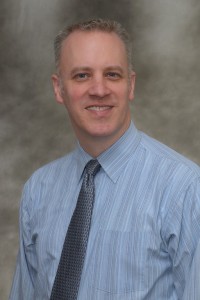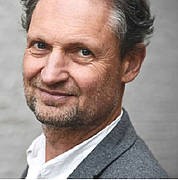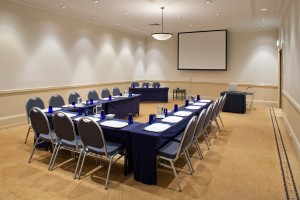The Committee are pleased to announce the following concurrent workshops will be taking place 9.00am – 5.00pm, Saturday 28 October.
Ticket cost: AACBT Student Member $110, AACBT Member $295, Non-member $455.
- Evidence-based Treatment for Late Life Depression. A Stepped-care, Shared Decision Making approach to providing High Quality Care to Older Adults – Professor Patrick Raue, University of Washington
- Schema Therapy for Personality Disorders and other Complex Presentations – Professor Arnoud Arntz, University of Amsterdam
- A Theoretical Framework and Therapy Model for Fear of Cancer Recurrence: Practical Strategies – Professor Phyllis Butow, University of Sydney
- Treating Childhood Trauma in Adults: Evidence-based Approaches and Important Process Issues – Professor Kim Felmingham, University of Melbourne

Workshop: Evidence-based treatment for Late Life Depression. A Stepped-care, Shared Decision Making approach to providing High Quality Care to Older Adults
Speaker: Professor Patrick Raue, University of Washington
In this workshop, Professor Raue will discuss and demonstrate evidence-based psychosocial treatments for late life depression, and the use of a stepped-care, shared decision-making approach to implementing the elements of these interventions. The workshop will consist of a brief review of the literature, the challenges faced in the US with implementation of these practices. Dr Raue will then report on recent recommendations from an Institute of Medicine report on psychosocial interventions, and describe a process for clinician training and treatment selection and modification based on UCLA Professor Chorpita’s work with clinicians in child mental health settings and informed by cognitive neuroscience. An example of this approach, Engage, will be taught to the participants, with ample opportunity for video-tape demonstration, role rehearsal, and case discussion. Engage is specifically tailored for older adults, including those with cognitive impairment, such as memory problems and executive functioning problems. Intentional repetition of steps in action planning, with a focus on exposure to rewarding activities is used. Further, Engage utilizes a stepped care format, in which additional strategies can be applied for older adults who do not respond to action planning alone. Specifically, Engage focuses on characteristics of late life depression that may act as barriers to success, including apathy and emotion dysregulation. Participants are asked to think about cases they have struggled with when implementing evidence-based psychosocial interventions for discussion.
Learning Objectives
By the end of the workshop, participants will be able to do the following:
- Identify common elements of evidence-based psychosocial treatment for late life depression
- Match elements of psychosocial interventions to the common problems seen in late life depression
- Introduce Engage to older patients
- Identify cognitive and behavioural barriers to poor response to action planning
Due to circumstances beyond our control, Professor Arean is unable to travel to Australia for the AACBT National Conference and Workshops Tour.
Late Life Depression will continue to have a strong place in our National Conference program with Professor Patrick Raue as a conference keynote speaker and presenting a workshop in Sydney.

Workshop: Schema Therapy for Personality Disorders and other Complex Presentations
Speaker: Arnoud Arntz, University of Amsterdam
Schema Therapy is one of the most effective treatments for borderline and other personality disorders, with a very high treatment retention which indicates high acceptability for patients. In this workshop an introduction into schema therapy will be offered. The workshop includes a theoretical introduction into schema therapy, the schema mode conceptualization of borderline and other personality disorders, and the specific way the therapeutic relationship is used (including the concept of limited reparenting). Participants will learn how to make schema mode conceptualizations of their own patients, in collaboration with their patients, that will guide their treatment. Next, participants will be offered explanations and live or video examples of the most important techniques, with a special emphasis on experiential techniques. Some practice with role plays in pairs will be offered. Lastly, a phase model of the treatment will be discussed, that helps therapists to choose the right approach in different phases of treatment.

Workshop: A Theoretical Framework and Therapy Model for Fear of Cancer Recurrence: Practical strategies
Speaker: Professor Phyllis Butow, University of Sydney
This workshop will focus on the most common and severe cancer survivorship issue – fear of cancer recurrence (FCR). FCR is seen in all people who survive cancer, but many find that it diminishes over time. However, for a substantial number of people (up to 60%), FCR continues to be high and disabling, preventing them from making future plans, causing over-screening and over-use of medical services and compromising quality of life. This workshop will provide a review of frameworks for understanding FCR, and will present a novel framework combining elements of the Self-Regulatory Executive Function (S-REF) model, Relational Frame Theory and Self-Regulation Theory. A therapy based on this model, including elements of metacognitive therapy, acceptance and commitment therapy and psycho-education, will be outlined. Practical strategies to implement this therapy will be demonstrated and practiced in the workshop. Patient handouts, relevant papers and a framework will be provided to workshop attendees.

Workshop: Treating Childhood Trauma in Adults: Evidence-based Approaches and Important Process Issues
Speaker: Professor Kim Felmingham, University of Melbourne
Childhood trauma is implicated in many adult psychological disorders, and is associated with traumatic stress symptoms as well as core disturbances in emotion regulation, attachment and interpersonal relationships, and schemas and self-esteem. Many individuals who have experienced cumulative childhood traumas do not receive evidence-based trauma-focused interventions. This workshop aims to illustrate ways to adapt trauma-focused treatments to address the challenges involved in treating individuals with complex childhood trauma histories and multiple traumatizations. The workshop will focus on important clinical issues including evaluating the need for and readiness to engage in trauma-focused treatment, and dealing with specific clinical challenges such as dissociation, ongoing risk, poor affect regulation and self-harm, shame and negative core beliefs, and revictimization.
Learning Objectives
As a result of this workshop, participants will:
- Understand recent evidence-based approaches to treating complex childhood trauma
- Learn how to adapt trauma-focused treatments for individuals with childhood trauma
- Discover key strategies and process issues in working with clients with childhood trauma
- Identify important therapy targets to promote ongoing growth and escaping negative life patterns.
Keep up to date with the AACBT 38th National Conference by signing up to receive our regular Conference e-newsletters – scroll down to subscribe or head to My Account to sign in.

The Scientific Program information can be found here.

